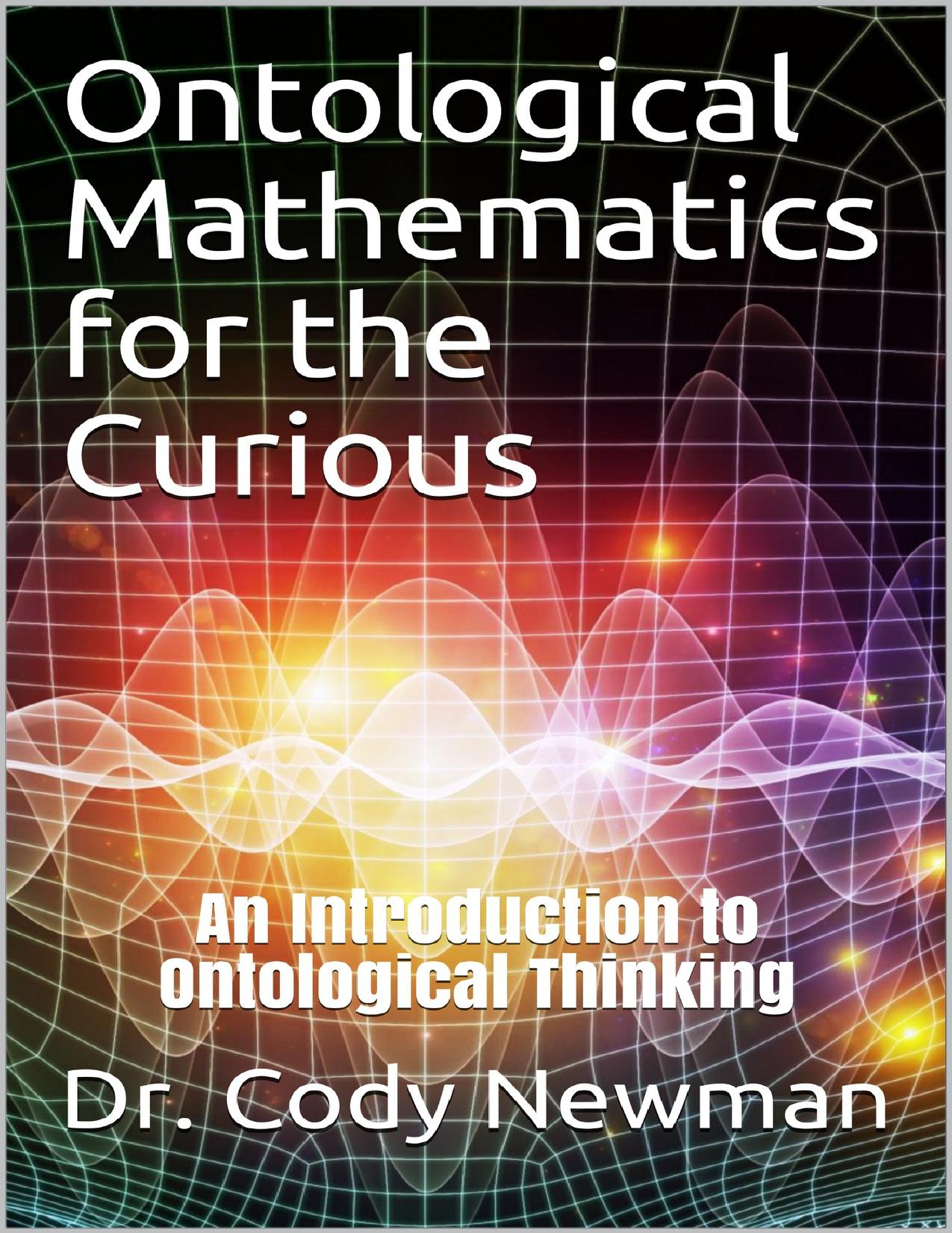Ontological Mathematics for the Curious: An Introduction to Ontological Thinking by Dr. Cody Newman

Author:Dr. Cody Newman [Newman, Dr. Cody]
Language: eng
Format: mobi, pdf
Published: 2019-06-25T23:00:00+00:00
Reason
The radical subtlety regarding reason is that reason, a conceptual subject, necessarily produces experiences (percepts), i.e. empirical percepts always accompany rational, ontological concepts. In other words, as soon as you have an ontological concept, a rational entity, you automatically have an empirical counterpart, its experiential flip-side.
The easiest way to explain this is via a simple analogy. Consider light. Light forms an electromagnetic spectrum. Every part of the spectrum has a different frequency, and every frequency conveys a different experience. You can have a red experience, a blue experience, an infra-red experience, ultra-violet, x-ray, microwave, radio wave, and so on.
You cannot have a numerical frequency without a non-numerical experience to accompany it. It is the seen, felt experienced layer that constitutes the empirical world of particular things, but it is the unseen, unfelt, unexperienced frequency layer that underlies all of this. This layer is where perceptual science cannot go but conceptual mathematics certainly can.
Our task is not to look at the world and work out the observable world, as science claims, it is to think about the world (conceive it rather than perceive it), and work out what the numerical, noumenal frequency world that underlies the empirical, phenomenal world is like. We must use reason and logic, not our flawed senses and highly subjective and dubious sensory observations, none of which is self-explanatory.
Everything, noumenally, can be considered in terms of frequencies (waves), and all frequencies are simply products of the regular motion of points in motion, their motion being dictated by the PSR, and the source formula for their motion being Euler’s Formula.
Tragically, it is impossible to get scientists to change their thinking, to become conceptualists rather than perceptualists. They are locked in. They are irrational and illogical. They only accept physical “evidence”, but reality is not about physical evidence, it’s about unobservable points in motion (“nothings” in motion), not observable “somethings” (particles) in motion.
Here’s the self-evident problem regarding science. To claim that observation is the best way to understand reality is a philosophical stance, not scientific. It is a conception, not a perception. It is already contrary to the scientific method since it does not rely on observation, but on a contentious claim regarding the merits of observation. If the foundational reality of existence is conceptual (non-observable) then science automatically falsifies reality and automatically leads us away from the truth of reality. How can science prove that no rational, logical, conceptual, mathematical order exists? Such an order is by definition beyond the reach of the scientific method. A method is all it is, attached to the dubious and unproved philosophy, ideology and dogmatism of materialism and empiricism.
A method may have use value. It has no intrinsic truth value unless it rationally and logically addresses indisputable truth, and not mere interpretation, opinion and belief. Knowledge is about certainty. Plato rightly stated this some 2,400 years ago. If you are mired in uncertainty, you lack knowledge. Science is not a subject about certainty. It is, as Nobel laureate Richard Feynman infamously said, about guessing.
Download
Ontological Mathematics for the Curious: An Introduction to Ontological Thinking by Dr. Cody Newman.pdf
This site does not store any files on its server. We only index and link to content provided by other sites. Please contact the content providers to delete copyright contents if any and email us, we'll remove relevant links or contents immediately.
| Anthropology | Archaeology |
| Philosophy | Politics & Government |
| Social Sciences | Sociology |
| Women's Studies |
Mystic Christianity by Ramacharaka Yogi(824)
The Convoluted Universe: Book One by Dolores Cannon(817)
An Outline of Occult Science by Rudolf Steiner(755)
The Game of Life and How to Play It by Florence Scovel Shinn(700)
Personal Knowledge by Michael Polanyi(673)
The Ancient Engineers by L. Sprague De Camp(647)
The Second Coming of Christ by Paramahansa Yogananda(638)
Be What You Wish by Neville Goddard(617)
A Magical Course in Tarot by Michele Morgan(613)
Soulcraft: Crossing Into the Mysteries of Nature and Psyche by Bill Plotkin(590)
Biocentrism by Bob Berman(581)
Attitudes of Gratitude by M. J. Ryan(543)
The Quantum Enigma by Wolfgang Smith(526)
The Eternal Law: Ancient Greek Philosophy, Modern Physics, and Ultimate Reality by Spencer John H(516)
The Master Key System by Charles F. Haanel(513)
The Key: A True Encounter by Whitley Strieber(494)
Clairvoyance (Extended Annotated Edition) by C. W. Leadbeater(490)
The Magic Labyrinth(489)
The Case Against Reality: Why Evolution Hid the Truth from Our Eyes by Donald Hoffman(486)
